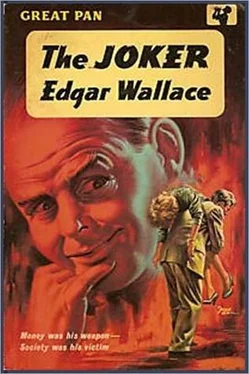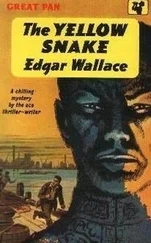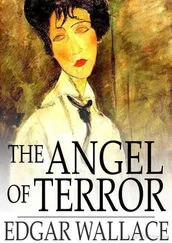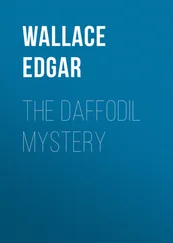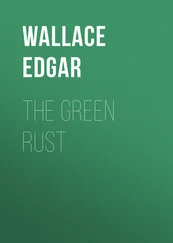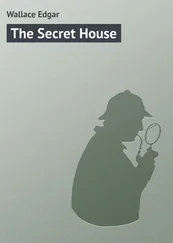Edgar Wallace - The Joker
Здесь есть возможность читать онлайн «Edgar Wallace - The Joker» весь текст электронной книги совершенно бесплатно (целиком полную версию без сокращений). В некоторых случаях можно слушать аудио, скачать через торрент в формате fb2 и присутствует краткое содержание. Год выпуска: 0101, Жанр: Старинная литература, на английском языке. Описание произведения, (предисловие) а так же отзывы посетителей доступны на портале библиотеки ЛибКат.
- Название:The Joker
- Автор:
- Жанр:
- Год:0101
- ISBN:нет данных
- Рейтинг книги:5 / 5. Голосов: 1
-
Избранное:Добавить в избранное
- Отзывы:
-
Ваша оценка:
- 100
- 1
- 2
- 3
- 4
- 5
The Joker: краткое содержание, описание и аннотация
Предлагаем к чтению аннотацию, описание, краткое содержание или предисловие (зависит от того, что написал сам автор книги «The Joker»). Если вы не нашли необходимую информацию о книге — напишите в комментариях, мы постараемся отыскать её.
The Joker — читать онлайн бесплатно полную книгу (весь текст) целиком
Ниже представлен текст книги, разбитый по страницам. Система сохранения места последней прочитанной страницы, позволяет с удобством читать онлайн бесплатно книгу «The Joker», без необходимости каждый раз заново искать на чём Вы остановились. Поставьте закладку, и сможете в любой момент перейти на страницу, на которой закончили чтение.
Интервал:
Закладка:
‘Get him,’ said somebody angrily, and Jim Carlton whipped out the twelve inch length of jambok that he carried in his pocket and struck at the nearest man. As the flexible hide reached its billet the man dropped like one shot. In another second his two companions had sprung at the detective; and he knew that he was fighting, if not for his life, at any rate to save himself from an injury which would incapacitate him for months.
Again the jambok reached home; a second man reeled.
And then a taxicab came flying down Long Acre with a policeman on each footboard…
‘No, not Bow Street,’ said Jim, ‘take them to Cannon Row.’
Aileen was in the taxicab, a most unheroic woman, on the verge of tears.
‘I guessed what they were after,’ said Jim, as they were driving home. ‘It is one of the oldest tricks in the world, that rehearsed street fight.’
‘But why? Why did they do it? Were they old enemies of yours?’ she asked, bewildered.
‘One,’ he said. ‘Donovan.’ He carefully avoided her second question.
The presence of Mr Harlow in his lordly car was no accident. The car which passed down Orange Street was ostensibly carrying him to Vira’s Club, but there was a short cut which brought him through St Martin’s Lane to the end of Long Acre before the two walkers could possibly reach there. What was more important was that it was very clear to Jim that he and the girl were under observation, and had been followed that night from the moment he left the club where he lived, until the attack was delivered.
The reason for the hold-up was not difficult to understand, even supposing he ruled out the very remote possibility that it was associated with Mrs Gibbins’s death. And that he must exclude, unless he gave Mr Harlow credit for supernatural powers.
He saw the girl to her boarding house and went back to Scotland Yard, to find a telegram awaiting him. It was from the detective force of Birmingham, and ran:
‘Your inquiry 793 Mrs Louisa Gibbins, deceased. Letter which came to her regularly every quarter, and which was subsequently readdressed to Mrs Gibbins, of Stanmore Rents, Lambeth, invariably had Norwood postmark. This fact verified by lodger of late Mrs Gibbins of this town. Annie Maud Gibbins’s real name, Smith. She married William Smith, a platelayer on Midland Railway. Further details follow, Hooge. Ends.’
A great deal of this information was not new to Jim Carlton. But the Norwood postmark was invaluable, for in that suburb of London lived Mr Ellenbury. Further details he would not need.
But before that clue could be followed, Jim Carlton’s attention was wholly occupied by the strange behaviour of Arthur Ingle, who suddenly turned recluse, declined all communication with the outside world and, locking himself in his flat, gave himself to the study of cinematography.
CHAPTER 10
IN THE days which followed Jim Carlton was a busy man, and only once during the week did he find time to see Aileen, and then she related one of the minor troubles of life.
A new boarder had come to the establishment where she lived, an athletic young man who occupied the room immediately beneath hers and whose apparent admiration took the form of following tier to her work every morning at a respectful distance.
‘I wouldn’t mind that, but he makes a point of being in the neighbourhood of the office when I come out for lunch, and when I go home at nights.’
‘Has he spoken to you?’ asked Jim, interested.
‘Oh, no, he’s been most correct; he doesn’t even speak at meals.’
‘Bear with him,’ said Jim, a twinkle in his eye. ‘It is one of the penalties attached to the moderately good-looking.’
Jim interviewed the girl’s new admirer.
‘As a shadow you’re a little on the heavy side, Brown,’ he said. ‘You should have found a way of watching her without her knowing.’
‘I’m very sorry, sir,’ said Detective Brown, and thereafter his espionage was less oppressive.
It was remarkable that in none of the excursions which Jim Carlton made from day to day did he once see Arthur Ingle. Deliberately he called at those restaurants and places of resort which in the old days were favoured by the man. It would not be a sense of shame or an unwillingness to meet old friends and associates of a more law-abiding life, that would keep him away. If anything, he was proud of his accomplishments, for by his fantastic twist of reasoning he had come to regard himself as a public benefactor.
Nobody had seen him; even the comrades whom it was his joy to address in frowsy Soho halls had not been honoured by speech or presence.
‘It almost looks as if he had gone over to the capitalists,’ said one.
‘I didn’t notice the flags were flying in Piccadilly,’ said Jim.
One night it happened that he found himself walking along the street at the back of Fotheringay Mansions and, looking up, noticed a bright light burning behind the green blind in an upper room. Mr Ingle’s apartment was easily located. There was a narrow parapet to identify the height; the lumber room where the light showed was four windows from the fire escape.
Elk was with him, and to that unenthusiastic man he confided his intentions.
‘He’ll start a squeal about police persecution,’ suggested Elk.
Undeterred, Jim went up in the elevator, though the man in charge discouraged him.
‘I don’t think Mr Jackson is at home,’ he said. ‘A gentleman called an hour ago and knocked twice but could get no answer.’
‘Maybe I can knock louder,’ suggested Jim.
But ring and knock as he did, he had no answer. Yet, as he listened at the letterbox aperture, to make certain that the bell was ringing, he could have sworn he heard a stealthy footstep inside. Why was Ingle hiding?
There was, of course, the possibility that the man was engaged in some new piece of roguery. But from his experience of swindlers, Jim Carlton knew that they were never furtive when they were planning a coup.
The landing was deserted and he could wait without attracting to himself the suspicion of the lift man. Again he stooped and listened; and now he heard a sound which puzzled him-a rapid whirring. He had heard that noise before somewhere, and yet he could not locate or diagnose the sound. It came very faintly as through a closed door…
He saw the ascending light of the elevator and walked to the gate. The car passed to the next floor to discharge its passenger, and then came down to his level.
‘Couldn’t make him hear, I suppose, sir?’ asked the elevator man, with the satisfaction of one whose dire prophecy has been realised. ‘He won’t see anybody these days. Why, he doesn’t even come out for his meals.’
‘He has a servant, hasn’t he?’
‘Not now,’ said the lift-man gloomily, as they sank slowly down the well. ‘Used to have, but she—’ He told the story of Mrs Gibbins. ‘Now he gets his food and stuff delivered. I think Mr Jackson is going in for something unusual,’ he added as they reached the ground floor and he pulled back the gates.
‘What do you mean by “something unusual”?’
The man scratched his head.
‘I don’t know exactly. About four days ago a man came here with a long black box—the sort of thing that they use for carrying films—’
Films! Now Jim Carlton understood. This was the sound he had heard: the whirr of a cine projector!
‘He took it up and left it. I asked him if Mr Jackson was taking on film work, but he said nothing—the man who brought it, I mean. Of course, if I knew for certain that he had any celluloid stored on the premises, I’d have to report it. Fire risk…’
Jim listened without hearing. He was dumbfounded by the discovery. Every man has his secret weakness, but though he had credited Mr Arthur Ingle with many peculiarities, he had never suspected him of a passion for the cinema.
Читать дальшеИнтервал:
Закладка:
Похожие книги на «The Joker»
Представляем Вашему вниманию похожие книги на «The Joker» списком для выбора. Мы отобрали схожую по названию и смыслу литературу в надежде предоставить читателям больше вариантов отыскать новые, интересные, ещё непрочитанные произведения.
Обсуждение, отзывы о книге «The Joker» и просто собственные мнения читателей. Оставьте ваши комментарии, напишите, что Вы думаете о произведении, его смысле или главных героях. Укажите что конкретно понравилось, а что нет, и почему Вы так считаете.
